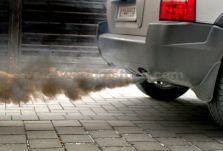Early Results from CAR T-Cell Therapy Trial for Myeloma Demonstrate “Encouraging” Response Rates
In an ongoing, phase I trial of chimeric antigen receptor (CAR) T-cell therapy in patients with relapsed/refractory myeloma, thirty three out of thirty five patients achieved finish response (CR) or very good partial response (VGPR), for a clinical remission rate of ninety four percent. Author Wanhong Zhao, MD, PhD, from the 2nd Affiliated Hospital of Xi’an Jiaotong University in Shaanxi, China, who introduced results as a late-breaking abstract at the two thousand seventeen ASCO Annual Meeting, called the findings an “encouraging breakthrough” for myeloma patients.
“Although latest advances in chemotherapy have prolonged life expectancy in numerous myeloma, this cancer remains incurable,” Dr. Zhao said during a press briefing. “It emerges that with this novel immunotherapy there may be a chance for cure in numerous myeloma, but we will need to go after patients much longer to confirm that.”
Dr. Zhao and researchers evaluated LCAR-B38M CAR T cells targeting B-cell maturation antigen (BCMA). The median number of infused cells was Four.7×10 six /kg (range = 0.6-7.0×Ten six /kg).
Preliminary safety and efficacy results from another phase I examine of BCMA-targeting CAR T-cell therapy for patients with myeloma were introduced at the two thousand sixteen ASH Annual Meeting. Adam D. Cohen, MD, from the Perelman School of Medicine at the University of Pennsylvania in Philadelphia, and colleagues reported a finish remission rate of forty four percent, including one patient who has been in stringent accomplish remission for twelve months.
The current trial followed patients for a median of two hundred eight days (range = 62-321 days), finding an objective response rate (ORR) of one hundred percent. Thirty-three patients (94%) achieved CR or VGPR within two months of CAR T-cell infusion.
At the time of data presentation, nineteen patients had been followed for longer than four months, which the researchers selected as a pre-specified point for efficacy assessment (per International Myeloma Working Group consensus guidelines). In this subset of patients, fourteen had achieved stringent CR, four had achieved VGPR, and one had achieved PR.
One patient in VGPR had evidence of disease progression, when an extramedullary lesion reappeared three months after a negative CT scan, Dr. Zhao noted. However, there have been no relapses among patients in stringent CR. Five patients have been followed for more than a year (12-14 months), and all remain in stringent CR and free of minimal residual disease.
“LCAR-B38M technology not only demonstrates outstanding efficacy, but also suggests a fine safety profile,” Dr. Zhao said. The most common adverse event (AE) associated with CAR T-cell therapy, cytokine release syndrome (CRS), occurred in eighty five percent of the patient population, but was transient in all patients. CRS was successfully managed with the IL-6 receptor tocilizumab.
Other AEs were “mild and manageable,” the authors reported, and included fever, hypotension, and dyspnea. No patients experienced neurologic AEs, which have been serious complications in other trials of CAR T-cell therapies.
The probe is limited by its petite patient population and brief follow-up. The researchers plan to eventually enroll a total of one hundred patients, and, “in early 2018, we also plan to launch a similar clinical trial in the United States,” Dr. Zhao said. “Looking ahead, we would like to explore whether BCMA CAR T-cell therapy benefits patients who are freshly diagnosed with numerous myeloma.”
Fan F, Zhao W, Liu J, et al. Durable remissions with BCMA specific chimeric antigen receptor (CAR)-modified T cells in patients with refractory/relapsed numerous myeloma. Abstract #LBA3001. Introduced at the two thousand seventeen ASCO Annual Meeting, June 6, 2017; Chicago, Illinois.
